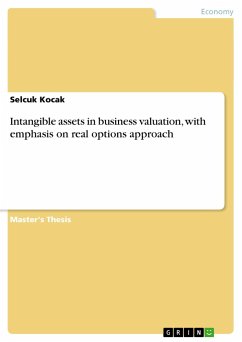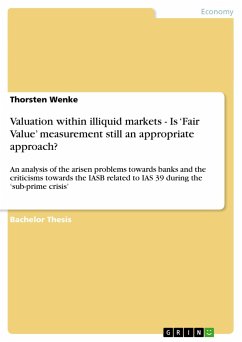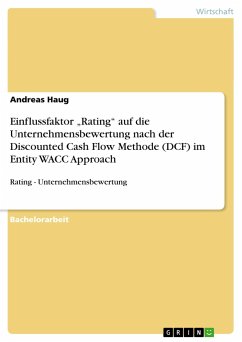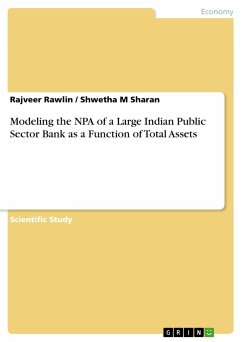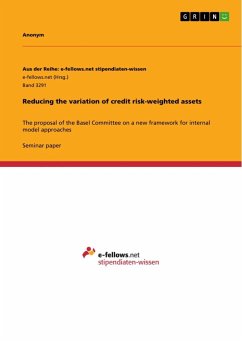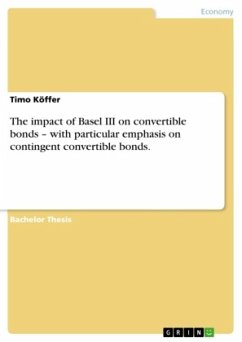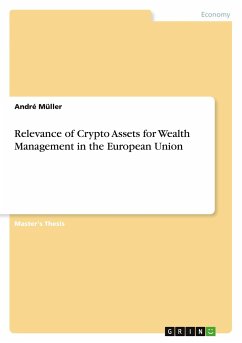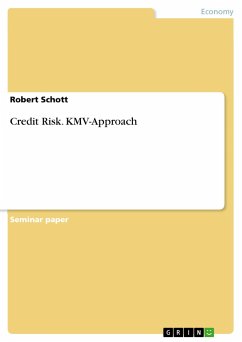Master's Thesis from the year 2005 in the subject Business economics - Banking, Stock Exchanges, Insurance, Accounting, grade: B, University of Applied Sciences Berlin, language: English, abstract: The change in the economy in the 20th century is more towards an economy based on ideas, away from the matter based economy of earlier times. The emphasis has shifted from natural resources to thought, ideas, design and organization11 Services replaced the importance of manufacturing. Contractor 2001,names this overall change as a de-materialization of the economy and quantifies the significance of the change by pointing out that by the end of the twentieth century 79 percent of jobs and 76 percent of the GNP in the United States were in the service sector. This change wasn't visible only in the US.European and Emerging nations did also portray similar trends.In 1969 Tobin introduced a new ratio called Tobin's q Ratio12, which have been a great influence on the valuation/measure of intangible components of enterprises. Having a look at the example of Microsoft'sratio between its market value and its book value, which in 1999 25 to 1 was, reveals the fact that most of the value is in the form of knowledge capital, in its employees, organization, patents, copyrights, brand value, etc. This ratio is bound to increase as the importance of intangible assets rises over thecourse of years. Though this increase is certain and expected, the valuation of these assets is still not clarified nor agreed upon. The value of the intangible assets is of importance to different audiences such as academicians, scholars, accountants, consultants, etc. and they haven't been able to come upwith one single approach to solving the problem. This thesis will focus on a particular subset of intangible assets, namely patents, and demonstrate how to value them.
Hinweis: Dieser Artikel kann nur an eine deutsche Lieferadresse ausgeliefert werden.
Hinweis: Dieser Artikel kann nur an eine deutsche Lieferadresse ausgeliefert werden.

